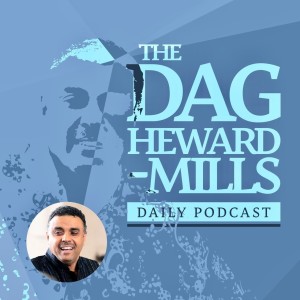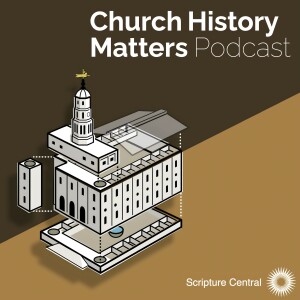

Our Easter celebration continues this week, with many of the readings emphasizing that the Good News of God’s saving plan in Jesus is for all peoples and nations. Even the Old Testament clearly says that, as our Psalm for this day, Psalm 67, indicates. The psalm begins with a summary of an important benediction given by the Lord to His people in Numbers 6:22-27. Psalm 67:2 tells the people that they are blessed, so that the Way of the Lord and His saving power would be known to all nations. This idea is expressed again and again as the psalm goes on. All people are to praise God. The nations are also to have gladness and joy in the Lord, and the Lord will judge and guide them in a fair way. God will bless Israel so that eventually, all the ends of the earth might fear and trust in Him. (This had been God’s plan from the beginning. When God called Abram to be the father of a new nation (Genesis 12:1-3), note that all families on earth would be blessed through his descendant, referring to our Lord Jesus, who came from the Jews. Abram’s name was changed to Abraham (Genesis 17:3-6) by the Lord because he would be the father of a multitude of nations. See how Paul explains this in Romans 4:16-25. Even we are offspring of Abraham through faith in the Lord Jesus and His sacrifice and resurrection for our justification, no matter what race or nation we come from.)
That the Gospel is for all is evident also in Acts 16:9-15. The plans of Paul (and Luke - see the “we” in verse 10ff) were changed by the Holy Spirit so that they went to Macedonia in northern Greece and brought the Good News of Christ to Lydia. Note that Lydia was called “a worshiper of God” in v.14. That means that she was already a convert to Judaism. She was probably of Greek or Roman background. Now the Lord opened her heart to pay attention to the Word of God brought by Paul, and she and her whole household came to faith in Jesus through the Word and baptism. This Good News in Christ is meant for all people. (See how Jesus Himself, on Easter, opened the minds of some believers to the Scriptures about Jesus Christ and how this Word of God was to be brought in Christ’s Name to all nations (Luke 24:44-47).)
The same message is seen in the Epistle lesson, a continuation of the reading from last week, from Revelation 21. In Revelation 21:9-14, the plagues and wrath of God are completed (v.8) as all unbelievers are cast into the lake of fire, the second death. Now there is only the joy of believers, in eternal life in the New Jerusalem, with believers from the Old Testament times and the apostles and believers from the New Testament times, centered in the Lamb, Jesus. There is no need for the sun or moon, for the Heavenly Father, along with God the Son, the victorious Lamb, and the Holy Spirit, will be present always and provide all that is needed. The glory and the honor of believers from the nations and kings, all who walk by the Light of Christ. will be there, too, - all whose names are written in the Lamb’s book of life. (See Ephesians 2:1-9, a description of how we were rescued from being children under God’s wrath to being the children of God, purely by God’s grace through the gift of faith in Christ Jesus.)
There are two possible Gospel readings this week. In John 5:1-9, Jesus helps a man who had been an invalid (blind, lame, or paralyzed) for 38 years. Jesus tells him to take up his bed and walk, and at once the man is healed. Following this text, in John 5:10-18, the man gets in trouble for carrying his bed (doing work) on the Sabbath, though he does not even know who healed him. Jesus meets him later in the temple (into which the man had probably been forbidden to enter, because of his disability, for a long time). Jesus encourages him to continue in the faith, seeking to do what is right. Jesus has gotten Himself into more trouble, too, for doing a work of healing on the Sabbath, and calling God His Father, making Himself equal with God. In this miracle, though, Jesus was showing that His saving work was for all people, including those who were cut off from God’s people by the Jews, even those with certain disabilities and physical imperfections. They, too, could be God’s people by faith in Jesus. Jesus came and died and rose again for all! (See the promises of 1 Timothy 2:3-6 of “God our Savior, Who desires all people to be saved and to come to the knowledge of the truth. For there is one God and there is one Mediator between God and man, the man Christ Jesus, Who gave Himself as a ransom for all.”)
The other possible Gospel reading is John 16:23-33, a continuation of one of last week’s Gospel lessons. Jesus has told His disciples that they will not see Him for a little while, and then they will see Him again, referring to His death and resurrection. In this reading, Jesus tells His disciples that He will also return to His Father in heaven. From that time forward, the disciples should pray to the Father, asking in the Name of Jesus their Savior. The Father will answer their prayers as He knows best because he loves them. The disciples reaffirm that they believe Jesus came from God, but Jesus knows their weak faith and warns that they will scatter and leave Jesus alone. He will not be alone, though, for the Father will be with Him, in His suffering to come. The disciples will also have tribulations, but in Christ they will have peace, for Christ will overcome the evil world and bring ultimate victory for them. When Jesus rose from the dead, He said again and again to them, “Peace be with you,” for He would pay the price for all their sins and forgive them and one day take them to eternal life in heaven, too. The same is true for all of us, in faith in Christ. We are far from perfect and struggle with tribulations, but we have peace in Christ ourselves, for this life and for eternal life to come.
More Episodes
All Episodes>>You may also like
Create Your Podcast In Minutes
- Full-featured podcast site
- Unlimited storage and bandwidth
- Comprehensive podcast stats
- Distribute to Apple Podcasts, Spotify, and more
- Make money with your podcast












